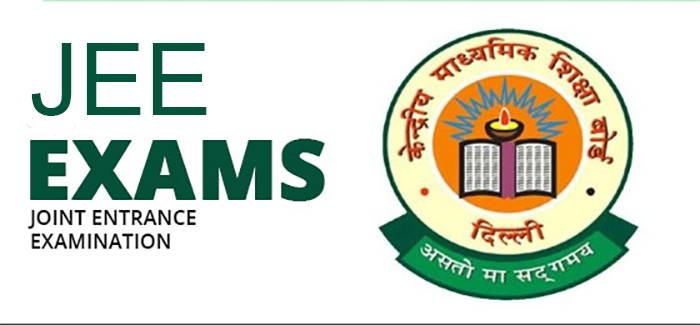
The Joint Entrance Examination (JEE) is an annual engineering entrance exam conducted by National Testing Agency (NTA). It is the largest engineering college entrance exam in India. It is used for admissions to various engineering colleges and courses all over India, including the Indian Institutes of Technology (IITs), National Institutes of Technology (NITs), and other centrally funded technical institutions (CFTIs). The exam is conducted in two stages – JEE Main and JEE Advanced. The JEE Main exam is held twice a year, in January and April, while the JEE Advanced exam is held once a year, usually in May.
Joint Entrance Examination (JEE) Eligibility Criteria
In order to be eligible for the Joint Entrance Examination (JEE), a candidate must meet the following criteria:
• Indian Citizens or Overseas Citizens of India (OCI) are eligible to apply.
• Candidates must have passed their Class 12th Exam in the year 2020 or 2021.
• Candidates must have secured at least 75% marks in their Class 12th Exam or be in the top 20 percentile of their respective Board.
• Candidates must be born on or after October 01, 1995.
• For JEE Advanced, candidates must have passed their Class 12th Exam with a minimum of 75% marks or be in the top 20 percentile of their respective Board.
Joint Entrance Examination (JEE) Eligibility Criteria
In order to be eligible for the Joint Entrance Examination (JEE), a candidate must meet the following criteria:
• Indian Citizens or Overseas Citizens of India (OCI) are eligible to apply.
• Candidates must have passed their Class 12th Exam in the year 2020 or 2021.
• Candidates must have secured at least 75% marks in their Class 12th Exam or be in the top 20 percentile of their respective Board.
• Candidates must be born on or after October 01, 1995.
• For JEE Advanced, candidates must have passed their Class 12th Exam with a minimum of 75% marks or be in the top 20 percentile of their respective Board.
Joint Entrance Examination (JEE) Colleges In India
1. Indian Institute of Technology (IIT), Bombay
2. Indian Institute of Technology (IIT), Delhi
3. Indian Institute of Technology (IIT), Madras
4. Indian Institute of Technology (IIT), Kanpur
5. Indian Institute of Technology (IIT), Kharagpur
6. Indian Institute of Technology (IIT), Roorkee
7. Indian Institute of Technology (IIT), Guwahati
8. Indian Institute of Technology (IIT), Hyderabad
9. Indian Institute of Technology (IIT), Gandhinagar
10. Indian Institute of Technology (IIT), Patna
11. Indian Institute of Technology (IIT), Bhubaneswar
12. Indian Institute of Technology (IIT), Indore
13. Indian Institute of Technology (IIT), Ropar
14. Indian Institute of Technology (IIT), Mandi
15. Indian Institute of Technology (IIT), Varanasi
16. Indian Institute of Technology (IIT), Palakkad
17. Indian Institute of Technology (IIT), Tirupati
18. Indian Institute of Technology (IIT), Jodhpur
19. Indian Institute of Technology (IIT)
Joint Entrance Examination (JEE) List of Stream
1. JEE Main
2. JEE Advanced
3. JEE B.Arch
4. JEE B.Plan
Joint Entrance Examination (JEE) Syllabus
JEE Main Syllabus The JEE Main syllabus is divided into three sections: Physics, Chemistry, and Mathematics.
Physics:
• Physical World
• Units and Measurements
• Motion in a Straight Line
• Motion in a Plane
• Laws of Motion
• Work, Energy and Power
• Systems of Particles and Rotational Motion
• Oscillations
• Gravitation
• Mechanics of Solids and Fluids
• Heat and Thermodynamics
• Electrostatics
• Current Electricity
• Magnetic Effect of Current
• Electromagnetic Induction and Alternating Currents
• Optics
• Dual Nature of Matter and Radiation
• Atomic Nucleus
• Electronic Devices
Chemistry:
• Some Basic Concepts of Chemistry
• States of Matter
• Atomic Structure
• Chemical Bonding and Molecular Structure
• Chemical Thermodynamics
• Solutions
• Equilibrium
• Redox Reactions and Electrochemistry
• Chemical Kinetics
• Surface Chemistry
• Classification of Elements and Periodicity in Properties
• Chemical Families – Periodic Properties
• General Principles of Metallurgy
• Hydrogen and S Block Elements
• P Block Elements
• Organic Chemistry–Some Basic Principles and Techniques
• Hydrocarbons
• Environmental Chemistry
Mathematics:
• Sets, Relations and Functions
• Complex Numbers and Quadratic Equations
• Matrices and Determinants
• Permutations and Combinations
• Mathematical Induction
• Binomial Theorem and its Simple Applications
• Sequences and Series
• Limit, Continuity and Differentiability
• Integral Calculus
• Differential Equations
• Co–ordinate Geometry
• Three Dimensional Geometry
• Vector Algebra
• Statistics and Probability
• Trigonometry
• Mathematical Reasoning



